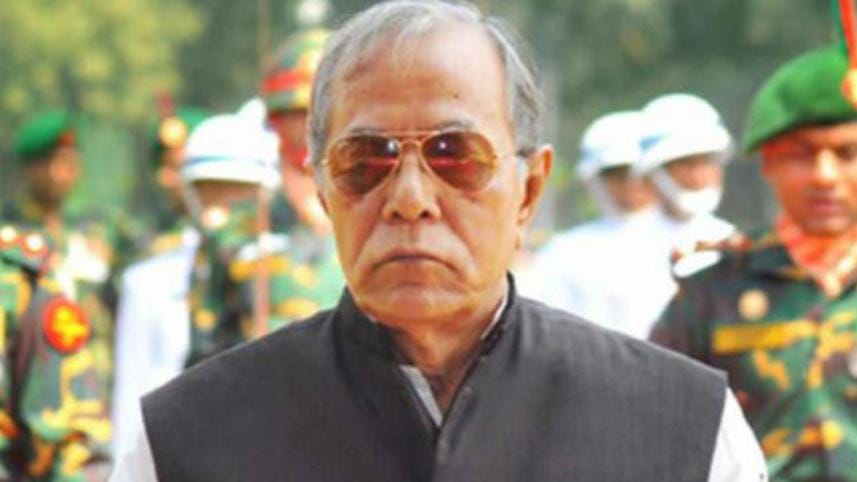Digital Security Bill: What can President do now?

All eyes are now on President Abdul Hamid as he will decide on the much debated Digital Security Bill.
Speaker Shirin Sharmin Chaudhury yesterday signed the Bill recently passed by parliament amid widespread criticism against some of its provisions that have been termed as a threat to freedom of speech and expression and the freedom of press as well.
A senior official in the parliament secretariat said the bill may be sent to the president's office this afternoon or tomorrow morning for his assent. With his assent the bill will become a law.
Journalists and rights activists have expressed concerns about the new law, saying it was passed without addressing their concerns.
A number of local and international organisation working for freedom of the press and good governance have urged the president not to assent to the Digital Security Bill and requested him to return to the House.
What can the president do now? The constitution in the article 80 offers him two options. He either assents to the bill or returns it to Parliament with a message that the Bill or any particular provisions thereof be reconsidered. He may suggest that any amendments specified by him in the message be considered.
But he must choose any of the options within 15 days after the bill is presented to him. If he fails to do so within the timeframe, he shall be deemed to have assented to the Bill at the expiration of that period.
If the President returns the Bill, Parliament shall consider it together with the President's message. The parliament will pass the bill again with or without amendments as suggested by the president in his message. And then it shall be presented to the President for his assent. This time, the president shall assent to the Bill within the period of seven days after it has been presented to him. And if he fails to do so he shall be deemed to have assented to the Bill on the expiration of that period.
The Sampadak Parishad (Editor's Council) has also been continuously speaking against some of the provisions of the bill terming them against freedom of the press. The council has been demanding amendments to sections 8, 21, 25, 28, 29, 31, 32, 43 and 53 of it.
Three days ago, three ministers at a meeting with the editors said that concerns expressed by journalists, including editors, over the Digital Security Bill would be taken into consideration and placed before a cabinet meeting for discussion.
In such a situation what are the options now? As mentioned above, the president has two options -- either giving assent to the bill or returning it to parliament. One thing is certain that the strategy of the government will reflect in the president's decision.
The Constitutional Provision
80. (1) Every proposal in Parliament for making a law shall be made in the form of a Bill.
(2) When a Bill is passed by Parliament it shall be presented to the President for assent.
(3) The President within fifteen days after a Bill is presented to him, shall assent to the Bill or, in the case of a Bill other than a Money Bill, may return it to Parliament with a message requesting that the Bill or any particular provisions thereof be reconsidered, and that any amendments specified by him in the message be considered; and if he fails so to do he shall be deemed to have assented to the Bill at the expiration of that period.
(4) If the President so returns the Bill Parliament shall consider it together with the President's message, and if the Bill is again passed by Parliament with or without amendments 57[ ***], it shall be presented to the President for his assent, whereupon the President shall assent to the Bill within the period of seven days after it has been presented to him, and if he fails to do so he shall be deemed to have assented to the Bill on the expiration of that period.
(5) When the President has assented or is deemed to have assented to a Bill passed by Parliament it shall become law and shall be called an Act of Parliament.



 For all latest news, follow The Daily Star's Google News channel.
For all latest news, follow The Daily Star's Google News channel.
Comments